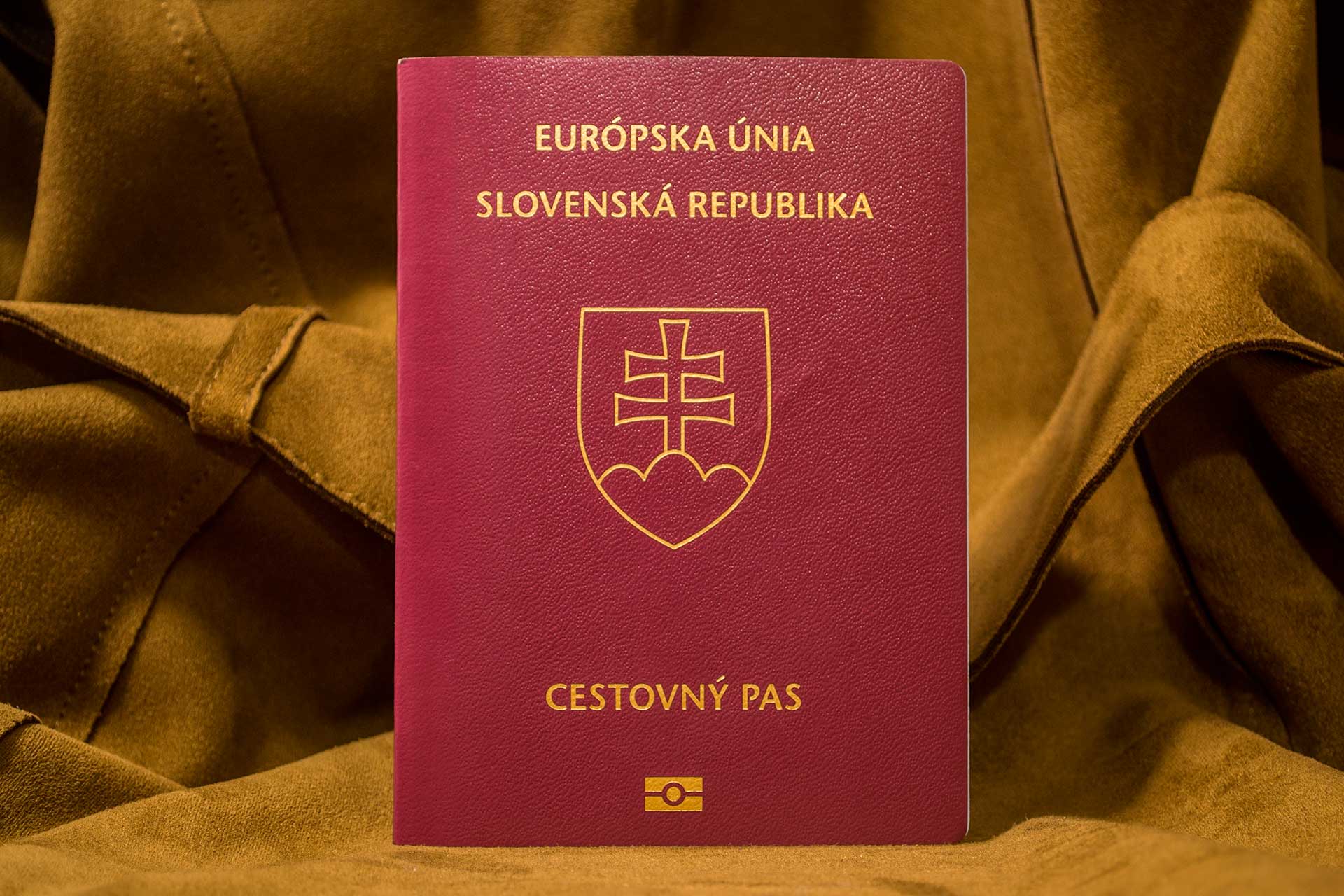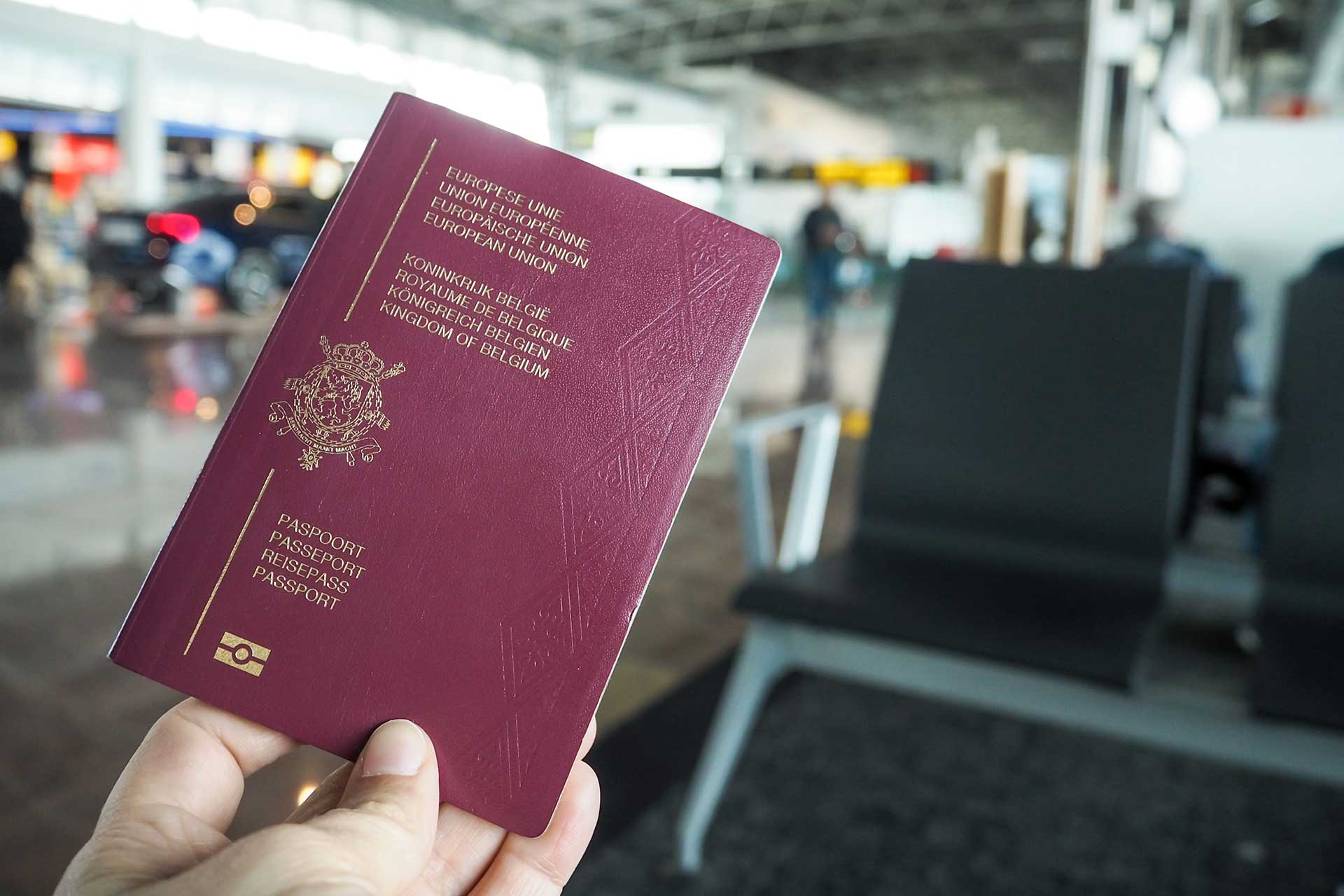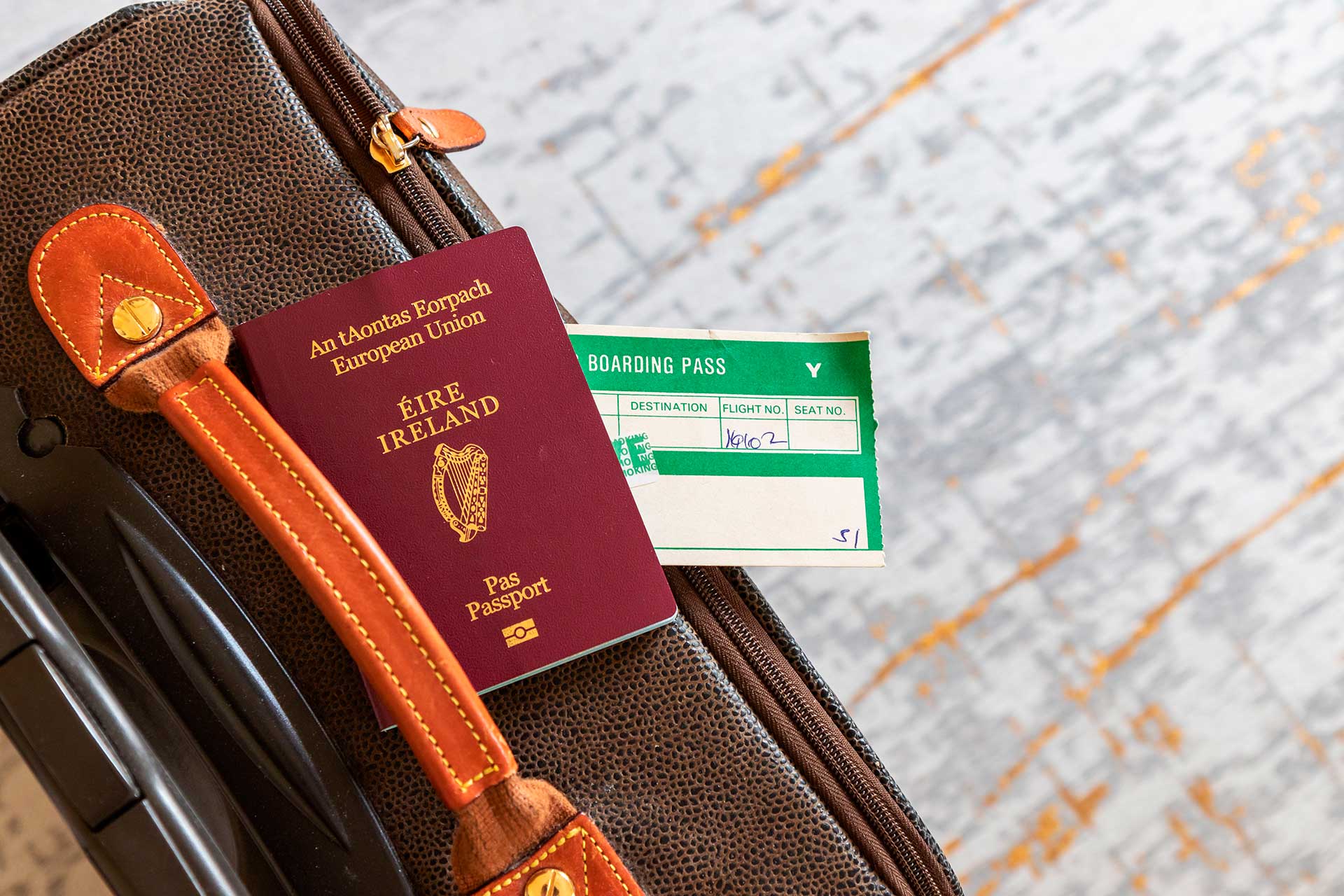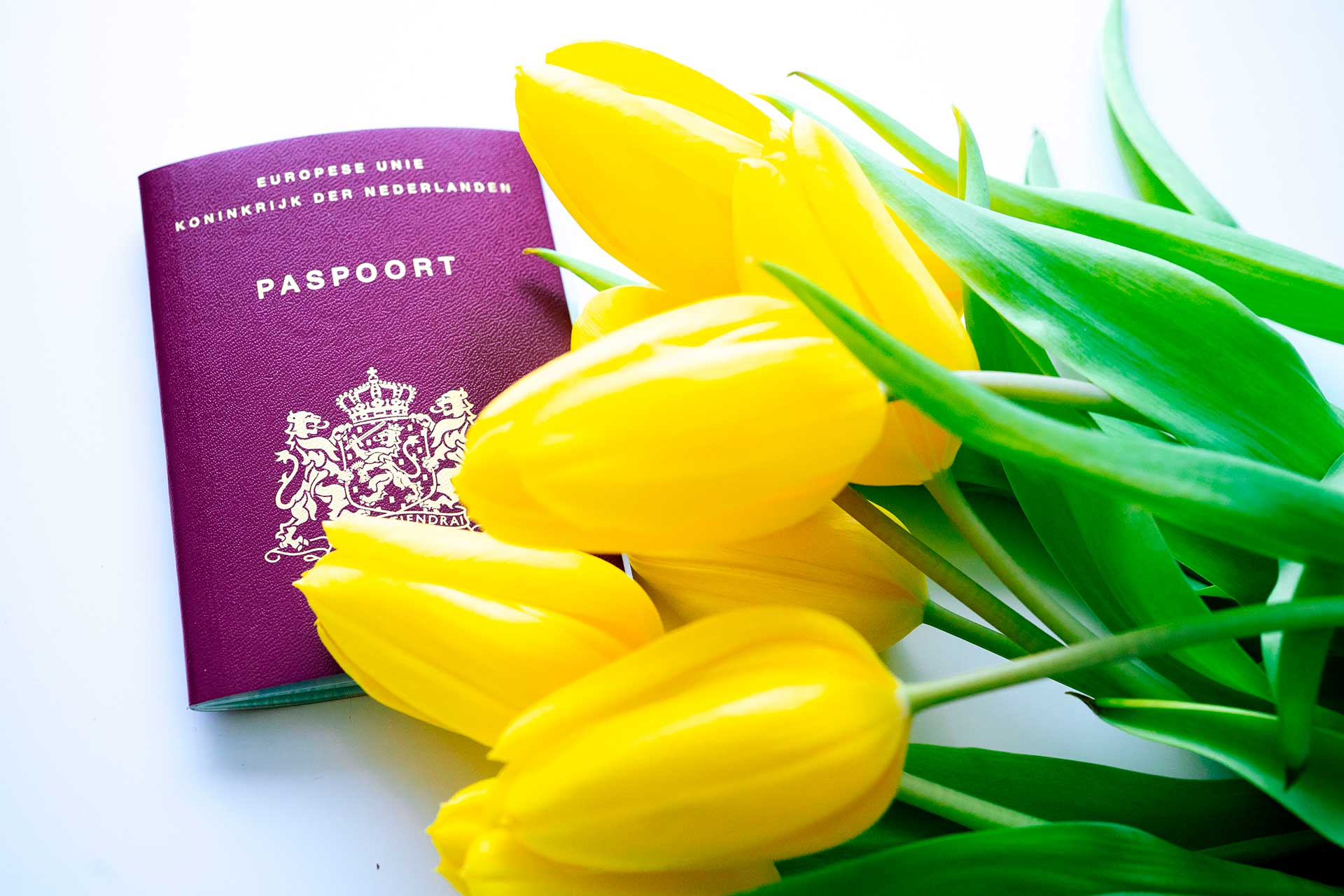- Advantages of EU citizenship
- Main ways of obtaining an EU citizenship
- Top countries to get citizenship of EU fast
- Requirements and procedure for obtaining a European citizenship
- How much time and money it takes to obtain an EU citizenship
- What doesn't work: how you can't get a European passport
- Dual citizenship in the EU: whether it is allowed to hold several passports
- Refusal to obtain an EU citizenship: main reasons and solutions
The EU passport will open wide opportunities for you to live and work comfortably in the European Union. Holders of this document can visit more than 160 countries without visas, including the Schengen zone, as well as freely reside, work and do business in any of the states of the association.
In addition to freedom of movement, EU citizens have access to health care under a single insurance and social benefits. That is why the EU passport is popular among immigrants seeking to improve their living conditions and get additional guarantees for the future for themselves and their families.
Advantages of EU citizenship
The following benefits are available to those who have EU citizenship:
- Freedom of movement and visa-free entry. EU citizens can travel freely throughout all EU and Schengen countries. The passport also gives access to more than 160 countries around the world without the need to obtain additional visas, which is especially convenient for those who travel frequently or conduct international business.
- Right to live and work in EU countries. EU citizens are free to choose their country of residence and employment. They can work in any EU state without the need for special permits, which expands career opportunities in a variety of economic environments.
- Social guarantees and access to health care. EU countries have a high-quality social support system, including health care under a single insurance, a variety of benefits and allowances. Citizens have access to a variety of programs and services that significantly improve their standard of living.
- Access to European education. Citizens of the European Union have the right to enroll in any educational institution throughout Europe, often on preferential terms compared to foreign students. In some countries, tuition may be free or heavily discounted. This opens up opportunities for quality education, as well as access to international academic and research programs.
- Tax advantages. European citizens are allowed to choose their tax residency, which can be useful in optimizing fiscal expenditures depending on the country of residence. This is especially relevant for entrepreneurs who can choose jurisdictions with favorable conditions for the development of their activities.
- Possibility of family immigration. Having EU citizenship, you will be able to formalize residence in Europe for family members - this will simplify the process of obtaining a residence permit and the right to work for spouses, children and parents.
Each case of obtaining citizenship is unique and depends on many factors, including country, legal and personal circumstances. In order to properly prepare documents and take advantage of all existing opportunities, it is necessary to seek advice from professionals in the field of migration law. Specialists will help to determine the best ways to obtain citizenship and understand the nuances of legal requirements.
Main ways of obtaining an EU citizenship
There are different pathways to European Union citizenship, from naturalization and marriage to investment and repatriation, and each has its own characteristics that allow you to choose the most appropriate pathway depending on your individual circumstances.
Naturalization and obtainment of citizenship through marriage
Naturalization is the main way of obtaining an EU passport for foreigners staying in the territory of the EU countries for a long time. This process requires legal residence in a particular state, fulfillment of a number of conditions and integration into society. Usually, the period of residency required to apply for naturalization ranges from 5 to 10 years, depending on the country's legislation.
After applying for citizenship, most countries require an interview, an examination on the history and culture of the state and proof of knowledge of the national language. Naturalization is suitable for those who plan long-term residence and development in an EU country.
An alternative way to obtain a European passport is to marry an EU citizen. Most EU countries provide the possibility of simplified naturalization to foreign spouses, reducing the period of compulsory residence. For example, in some jurisdictions the period for applying for citizenship by marriage is reduced to 2-3 years. However, each state imposes its own requirements - it is necessary to prove the authenticity of the relationship, confirm financial security and often reside on the territory of the country together with the spouse.
Investing in the economy
Investing in the country's economy is one of the fastest ways to obtain citizenship in Europe. However, while previously an investor could immediately obtain a “golden passport”, now the procedure involves only the right to apply for a residence permit or permanent residence permit and then citizenship. The most common forms of investment include buying real estate, starting a business, creating jobs and investing in government funds. Such countries as Portugal and Malta are actively developing investment immigration programs.
For example, in Malta, an investor must purchase real estate at the amount of 325,000 EUR or invest 40,000 EUR or more in the economy through government programs. Once these conditions are met, the candidate and his family can obtain a residence permit and then citizenship within a period of several months to five years.
Investment programs require mandatory confirmation of the legality of the origin of funds, and also impose a number of conditions aimed at verifying the reliability of the candidate. Although this method requires a significant investment, in some countries it allows to obtain EU citizenship faster than standard naturalization, which makes it attractive for wealthy people and businessmen.
Repatriation
It is possible to obtain an EU passport by repatriation. The program involves the return of descendants of those who have roots or ancestors from an EU country and registration of legal status on the basis of ethnic or territorial affiliation. This process is relevant for people whose relatives lived on the territory of modern Europe. Repatriation programs operate, for example, in Slovenia, Romania and Bulgaria.
An important condition is the availability of documents confirming ancestry - these may be birth or marriage certificates of ancestors. Some countries also require an examination or interview to prove cultural and linguistic knowledge.
Many foreigners with European roots choose the repatriation route, as this method allows them to obtain citizenship with minimal difficulty and usually does not require a large financial investment. In addition, the program is accelerated and allows you to become a citizen of an EU country in the shortest possible time.
Get EU citizenship fast and easily
Learn how to become an EU citizen through simplified programs
Top countries to get citizenship of EU fast
Obtaining citizenship of one of the EU countries opens access to a full list of rights throughout the EU, which provides the holder with a wide range of opportunities, including freedom of movement, as well as employment without restrictions and additional permits. A number of countries have simplified procedures that make a European passport more accessible.
Romania
To obtain a Romanian passport within up to 14 months, you can use the repatriation program. You need to collect documents proving your territorial affiliation and make an appointment at the headquarters of the National Directorate of Citizenship in Bucharest or its territorial offices, either online or by phone. The application can also be submitted at the Romanian consulate or diplomatic mission in the country of residence.
On the appointed day, you must submit the documents in person and receive a registration number (dosar) to track the status of the application on the authority's website. After the security check, you will be notified of the decision. If the answer is positive, you will have to take the oath ceremony at the National Authority for Citizenship or at the consulate within six months after receiving the order of granting the civil status.
Bulgaria
Bulgarian citizenship by repatriation is granted to people with Bulgarian roots, regardless of whether they reside in the country or not. The process starts by submitting an application and dossier to the Ministry of Justice. You need to prove your Bulgarian ancestry by providing proof of ancestors in the country. This can be birth certificates of ancestors up to the third generation or other archival documents.
The submission of documents takes place without mandatory residence in Bulgaria, which makes the process much easier for people abroad. The candidate will then face an interview where they will be asked questions regarding the basics of the constitution, history and culture of the country. The process can take several months, after which, if the application is approved, the applicant will receive a Bulgarian passport.
Slovenia
The accelerated citizenship procedure in Slovenia involves obtaining a passport based on roots. The process begins with the collection of documents - birth certificates, records in old registries and other data proving kinship with Slovenian citizens. The application for citizenship is submitted after one year of residence in the country. The application is accepted by the administrative office in the place of residence.
After successful verification and approval of the application, you will receive a citizenship notification, after which you will be required to take an oath and subsequently apply for a Slovenian passport.
Qualified lawyers assist in gathering the necessary documents and selecting the most appropriate relocation program, taking into account the individual circumstances and goals of the client. This approach will ensure that the process at all stages of obtaining citizenship is as efficient as possible.

Requirements and procedure for obtaining a European citizenship
In order to obtain an EU passport, you need to prepare a dossier. The main documents that may be required to obtain an EU passport are:
- passport;
- birth certificate;
- documents proving legal residence in the country (e.g., residence permit) - if applicable;
- proof of grounds for citizenship;
- proof of financial security (income certificates or bank statements);
- proof of language skills (in some countries);
- proof of criminal record.
The steps in applying for citizenship under the standard naturalization procedure are generally as follows:
- Obtaining a visa and residence permit. First, it is necessary to obtain a long-term visa of category D, move to a particular EU country and apply for a residence permit, which can be issued there on the basis of work, studies, family ties and other reasons.
- Residence on the territory of an EU country. It is necessary to adhere to the established period of stay, which varies from state to state (usually from 5 to 10 years). As a rule, after 3-5 years you can request permanent residence status, which is granted indefinitely if you meet all immigration conditions.
- Gather your dossier and apply for citizenship. Once your documents are prepared, you can apply for citizenship by contacting the appropriate migration authority.
- Undergoing an interview and obtaining a certificate. Some countries may require an interview to test your language and cultural knowledge. Once your application and documents have been verified by the authorities, a decision on citizenship will be made. Some countries require an oath ceremony afterwards.
- Obtaining a passport. After a positive decision of the authorized state body and passing the oath ceremony, you can apply for an EU passport. As a rule, the document is issued at a police station or passport office. The price of an EU passport depends on the country where you apply for it.
Registration of European citizenship according to the simplified procedure will allow you to avoid most of the listed stages. You will not need to obtain a residence permit, look for grounds for long-term residence in the country, integrate into society and collect a large number of documents. Learn more about this during a free consultation with immigration specialists.
How much time and money it takes to obtain an EU citizenship
The time and costs of citizenship application may vary depending on the country and the chosen path. A state duty is payable at all stages of the procedure. In addition, for example, investors should consider the amounts of financial contributions required. To obtain an EU passport, it is important to consider the various methods, timelines, and associated costs, which differ depending on the chosen process.
Naturalization requires residing in a country for 5 to 10 years, demonstrating proficiency in the local language, and integrating into society. This process takes 5 to 10 years, depending on the specific country and its conditions. Additional costs, including relocation, accommodation, and document preparation, range from €5,000 to €20,000.
Investment programs are an appealing option for those with substantial financial resources. They require investments ranging from €300,000 to €10,000,000, with a minimum residency period of 1 to 7 years. While some programs offer accelerated pathways, the total expenses, covering investments, housing, residence, and legal services, can amount to €310,000 to €10,050,000.
Marriage to an EU citizen significantly shortens the timeline. Citizenship can be obtained in 1 to 4 years after registering the marriage and living in the country, depending on the local regulations. Associated costs, such as relocation, accommodation, and legal services, typically fall between €2,000 and €5,000.
Repatriation, or acquiring citizenship through descent, is suitable for those who can provide documentary evidence of their lineage from an EU citizen. This method is the fastest, taking 4 to 14 months, with expenses for relocation and legal support ranging from €2,000 to €10,000.
Each pathway has unique requirements and timelines, so carefully evaluating the options is key to selecting the most suitable method for obtaining EU citizenship.
What doesn't work: how you can't get a European passport
Obtaining citizenship is associated with many misconceptions, following which can lead to unpleasant consequences. Below are a few common myths about how it is supposedly possible to obtain an EU passport:
- Giving birth in the EU. Many people believe that giving birth in Europe automatically entitles you to citizenship. However, this is not true, as most countries require at least one of the parents to have residency status.
- Purchase an EU passport. Contrary to rumors, no official institution is engaged in the direct sale of a passport. Such offers are bound to involve fraud and breaking the law.
- Sham marriage. Concluding a fictitious marriage to obtain citizenship is a crime. In most cases, such schemes are exposed, and an attempt to cheat can lead to deportation and a ban on entry to the European Union.
- False data. Some foreigners try to use false documents to speed up the citizenship process. This is considered a criminal offense and carries serious consequences, including prison term.
Migration specialists will help you to prepare the necessary documents and choose the most optimal way to apply for citizenship. Cooperation with experienced lawyers will increase your chances of successfully obtaining a passport.
Get EU citizenship under a simplified procedure
Default Description

Dual citizenship in the EU: whether it is allowed to hold several passports
Dual citizenship in Europe is the ability to hold two passports at the same time, with each state recognizing your status in both countries. There is also the concept of second citizenship, which involves holding two passports, with each country recognizing your rights and obligations solely in relation to its own jurisdiction.
In most EU countries, including Germany, France and Italy, second citizenship is allowed. However, in some states, such as Austria and Latvia, you can only make a request for an EU passport after renouncing your current status.
Multiple citizenship offers a wide range of opportunities, including free movement between countries, the right to work, social and health services in more than one state, and a variety of economic and educational opportunities. The ability to hold EU passports depends on the laws and the chosen path to citizenship.
Refusal to obtain an EU citizenship: main reasons and solutions
As a rule, the reason for denial of citizenship is the lack of necessary documents, their incorrect submission, the presence of criminal records or offenses, as well as the provision of false information about oneself. Immigration authorities carefully check each application, and any mistakes can lead to distrust of the applicant by the authorized services.
If you have been refused a passport to enter the EU, you should not panic. Get information about the reason for the refusal in the first instance, which will help you understand what aspects of your application need to be corrected. Make sure that all documents meet the requirements. In some cases, by following the established rules, it is possible to appeal the decision of the immigration authorities.
Participating in a simplified immigration program with the help of experienced professionals can help you obtain EU citizenship in a short period of time and at minimal cost. Professional lawyers will help to prepare the documents correctly and check their compliance. Qualified support makes the process simpler and significantly increases the chances of achieving your goal.

Mark Gartman
Migration lawyer
The lawyer of Futurepassports company, which specializes in international law. Advises on immigration issues and helps you find the best options to quickly obtain citizenship in EU countries.
“Immigration is not just a journey from one place to another, it is a journey from who you were to who you can become.”



